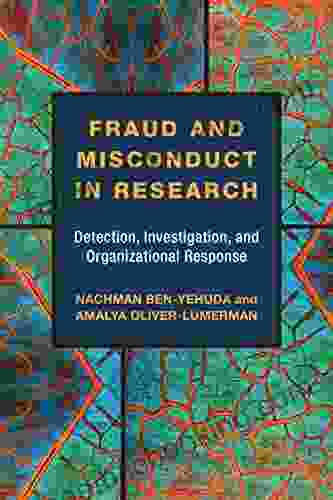Fraud and Misconduct in Research: A Comprehensive Guide

4.5 out of 5
| Language | : | English |
| File size | : | 1689 KB |
| Text-to-Speech | : | Enabled |
| Screen Reader | : | Supported |
| Enhanced typesetting | : | Enabled |
| Word Wise | : | Enabled |
| Print length | : | 278 pages |
Fraud and misconduct in research are serious problems that can have a devastating impact on the scientific community and the public trust. In recent years, there have been a number of high-profile cases of research fraud and misconduct, which have raised concerns about the integrity of the scientific process and the reliability of scientific findings.
This comprehensive guide provides an overview of fraud and misconduct in research, including what it is, how to recognize it, and what to do about it. The guide also provides resources for researchers, institutions, and the public to help prevent and detect fraud and misconduct in research.
What is Fraud and Misconduct in Research?
Fraud and misconduct in research are defined as any intentional or reckless deviation from accepted research practices that results in the misrepresentation of research findings.
There are many different types of fraud and misconduct in research, including:
- Falsification of data: This involves creating or altering data to support a desired outcome.
- Fabrication of data: This involves creating data that does not exist.
- Plagiarism: This involves copying someone else's work and presenting it as your own.
- Misrepresentation of findings: This involves presenting research results in a way that is misleading or inaccurate.
- Conflict of interest: This occurs when a researcher has a financial or personal interest in the outcome of their research.
- Research misconduct: This is a broad term that encompasses any violation of accepted research practices that does not rise to the level of fraud.
How to Recognize Fraud and Misconduct in Research
There are a number of red flags that can indicate fraud and misconduct in research. These include:
- Unexplained gaps or inconsistencies in the data
- Data that is too good to be true
- s that are not supported by the data
- A lack of transparency in the research process
- A history of misconduct by the researcher
What to Do About Fraud and Misconduct in Research
If you suspect that fraud or misconduct has occurred in research, it is important to report it to the appropriate authorities. This may include the researcher's institution, the funding agency, or the journal that published the research.
It is also important to be aware of your own potential biases and conflicts of interest. If you have any financial or personal interest in the outcome of your research, it is important to disclose this to your colleagues and the public.
Resources for Researchers, Institutions, and the Public
There are a number of resources available to researchers, institutions, and the public to help prevent and detect fraud and misconduct in research. These include:
- The Office of Research Integrity (ORI): ORI is a federal agency that provides oversight of research integrity in the United States. ORI provides resources and guidance to researchers, institutions, and the public on how to prevent and detect fraud and misconduct in research.
- The National Science Foundation (NSF): NSF is a federal agency that provides funding for research in the United States. NSF has a number of policies and procedures in place to prevent and detect fraud and misconduct in research.
- The National Academy of Sciences (NAS): NAS is a private, non-profit organization that provides advice to the government on science and technology issues. NAS has a number of reports and resources available on fraud and misconduct in research.
Fraud and misconduct in research are serious problems that can have a devastating impact on the scientific community and the public trust. However, there are a number of things that researchers, institutions, and the public can do to prevent and detect fraud and misconduct in research. By working together, we can ensure that the scientific process is fair, transparent, and accurate.
4.5 out of 5
| Language | : | English |
| File size | : | 1689 KB |
| Text-to-Speech | : | Enabled |
| Screen Reader | : | Supported |
| Enhanced typesetting | : | Enabled |
| Word Wise | : | Enabled |
| Print length | : | 278 pages |
Do you want to contribute by writing guest posts on this blog?
Please contact us and send us a resume of previous articles that you have written.
 Book
Book Novel
Novel Page
Page Chapter
Chapter Text
Text Story
Story Genre
Genre Reader
Reader Library
Library Paperback
Paperback E-book
E-book Magazine
Magazine Newspaper
Newspaper Paragraph
Paragraph Sentence
Sentence Bookmark
Bookmark Shelf
Shelf Glossary
Glossary Bibliography
Bibliography Foreword
Foreword Preface
Preface Synopsis
Synopsis Annotation
Annotation Footnote
Footnote Manuscript
Manuscript Scroll
Scroll Codex
Codex Tome
Tome Bestseller
Bestseller Classics
Classics Library card
Library card Narrative
Narrative Biography
Biography Autobiography
Autobiography Memoir
Memoir Reference
Reference Encyclopedia
Encyclopedia Noah Michaud
Noah Michaud Paul R Daugherty
Paul R Daugherty Peter Grant
Peter Grant Michael Labossiere
Michael Labossiere P J Gerrard Gough
P J Gerrard Gough Paula Yoo
Paula Yoo P F Chisholm
P F Chisholm Philip Smith
Philip Smith Patricia S Lemer
Patricia S Lemer Pauline Frommer
Pauline Frommer Peter Spier
Peter Spier Robin Meloy Goldsby
Robin Meloy Goldsby Varian Johnson
Varian Johnson Phil Thornton
Phil Thornton Paul Readman
Paul Readman Valerie Rice
Valerie Rice Jeff Galloway
Jeff Galloway Zia Allaway
Zia Allaway R Neil Hewison
R Neil Hewison Tanisha Stewart
Tanisha Stewart
Light bulbAdvertise smarter! Our strategic ad space ensures maximum exposure. Reserve your spot today!
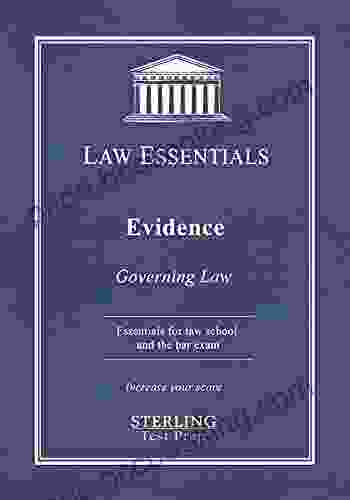
 Marvin HayesGoverning Law for Law School and Bar Exam Prep: Your Essential Guide to Legal...
Marvin HayesGoverning Law for Law School and Bar Exam Prep: Your Essential Guide to Legal...
 Andy HayesHeisenberg's Uncertainty Principle: Modern Plays that Explore the Boundaries...
Andy HayesHeisenberg's Uncertainty Principle: Modern Plays that Explore the Boundaries... Luke BlairFollow ·9.8k
Luke BlairFollow ·9.8k Anthony BurgessFollow ·4.7k
Anthony BurgessFollow ·4.7k Kazuo IshiguroFollow ·13.3k
Kazuo IshiguroFollow ·13.3k Alexandre DumasFollow ·14.2k
Alexandre DumasFollow ·14.2k Blake KennedyFollow ·5.6k
Blake KennedyFollow ·5.6k Dominic SimmonsFollow ·5.9k
Dominic SimmonsFollow ·5.9k Dan BrownFollow ·13.1k
Dan BrownFollow ·13.1k Derrick HughesFollow ·14k
Derrick HughesFollow ·14k

 Marvin Hayes
Marvin HayesGoverning Law for Law School and Bar Exam Prep: Your...
Unlock the Secrets of...
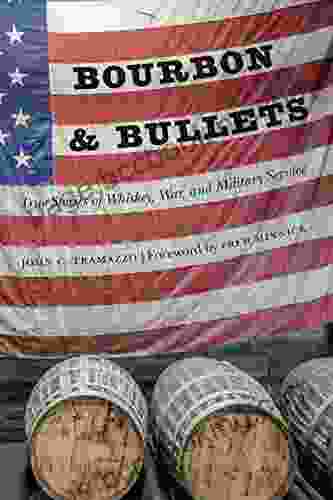
 Sidney Cox
Sidney CoxUnveiling the Epic Tales of Whiskey, War, and Military...
In the tapestry of history,...
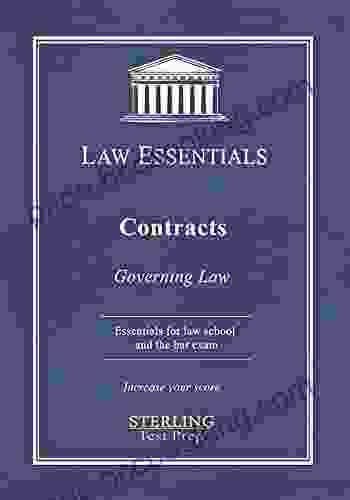
 Victor Turner
Victor TurnerGoverning Law for Law School and Bar Exam Prep: The...
What is Governing...
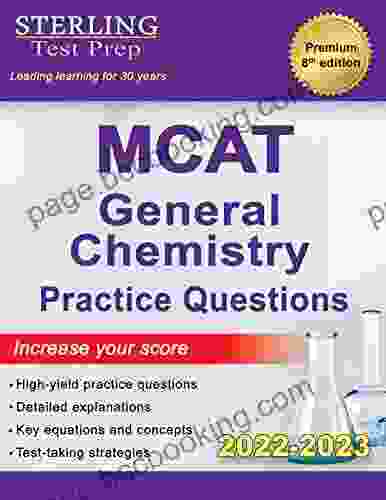
 Robert Browning
Robert BrowningSterling Test Prep MCAT General Chemistry Practice...
: Embark on Your MCAT General Chemistry...
4.5 out of 5
| Language | : | English |
| File size | : | 1689 KB |
| Text-to-Speech | : | Enabled |
| Screen Reader | : | Supported |
| Enhanced typesetting | : | Enabled |
| Word Wise | : | Enabled |
| Print length | : | 278 pages |


